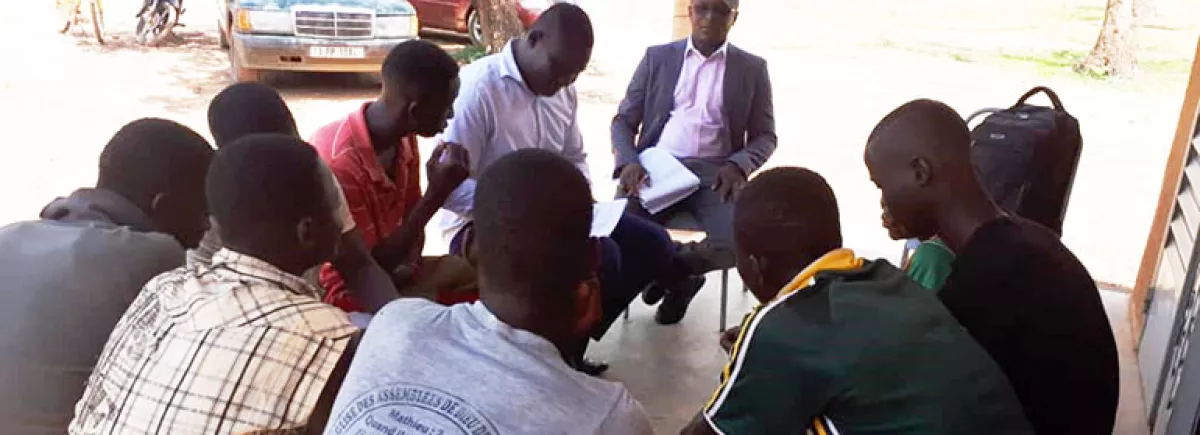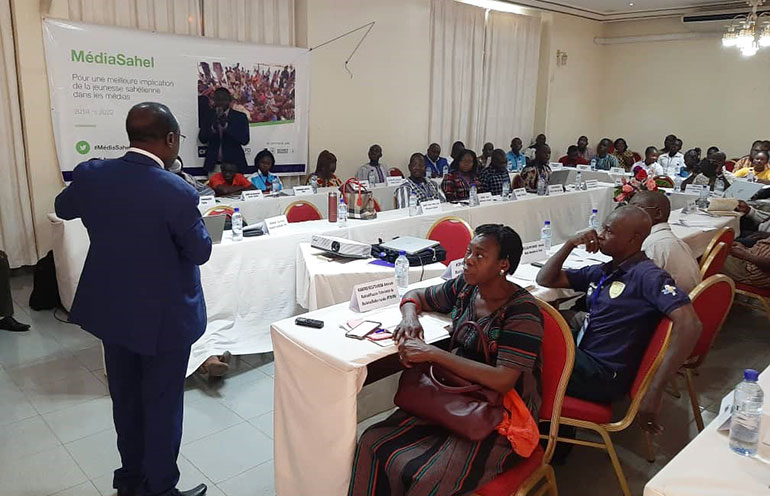
Three studies to better understand youth-media relations
Related project
MediaSahelField studies undertaken in October 2019 identified key stakeholders in districts in Burkina Faso, Mali and Niger that were targeted by the MédiaSahel project and assessed the relationships between local stakeholders, young people and the media.
The study carried out in the regions of Bobo-Dioulasso, Dori, Dédougou, Ouagadougou, Fada N'Gourma and Ouahigouya in Burkina Faso revealed that young people view radio in a positive light as a way of staying informed, entertained and educated. They claim that "
the best programmes are those that engage young people." Although the expectations of young Burkinabe people currently differ depending on where they live, they all advocate a more interactive approach to programming that gives them a clearer voice.
While young people from Dori, Kaya and Ouahigouya believe more strongly that security is the burning issue, those in other cities such as Ouagadougou are drawn more towards interactive programmes that address topics such as human development. Cultural programmes are also quite popular because, as a young man from Dédougou explains, "
they allow us to be in sync with our society and to remember who we really are."
Radio, a key media outlet in Mali
The study in Mali was carried out in the regions of Mopti, Gao, Tombouctou and Ménaka. Radio has once more become a key source of information in these regions, crippled as they are by dangerous levels of insecurity. That is why young Malians want programmes that inform them about the state of play in their country, above all else.
" I would like to hear about the crisis in the country at times like this. As my work requires me to travel, I would also like to know the risks as and when they occur", explains a young man from Gao.
https://www.cfi.fr/en/node/add/news?translation=37...The study in Niger was carried out in the regions of Diffa, Niamey, Tahoua and Zinder. Focus groups looked at the needs of young people and the restrictions they encounter and revealed what kind of activities most closely match their interests.
What emerged was a real appetite for interactive, youth-oriented programmes that address social issues and are produced with the support of existing informal discussion groups, known locally as "fadas".

Advisor with young people, in front of the Diffa Youth and Arts Centre
Young flagbearers in each country
These studies made it easier to identify young "flagbearers" (18 in Niger, 25 in Burkina Faso and around 20 in Mali) who can support MédiaSahel's goals but also bring the concerns and aspirations shared by everyone into the public eye and discuss them.
The intention is to present the main findings from these studies at feedback days, the first of which took place at the CFI offices in Burkina Faso and involved 27 youth representatives who had been identified, partners and the press. Over the course of the day, it became clear just how important it is that young people are involved in the project. To a certain extent, the variety of attendees (young people, station managers and teachers) highlighted the main ambitions of social cohesion and discourse pursued by the MédiaSahel project.
Feedback workshops are scheduled to be held in Mali and Niger as well.

Feedback day in Burkina Faso


